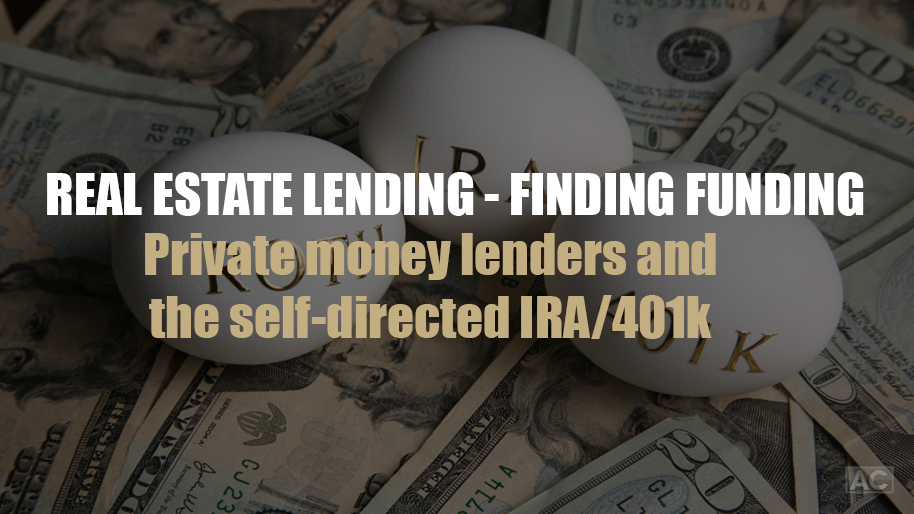Blog
Property Investments
November 22, 2014Property investments are part of most millionaires portfolio. As I’ve mentioned previously, I made my first million by the age of 25 by investing in real estate and flipping properties. There are many advantages of property investments. They can provide investors with an opportunity to rent, income and cash flow. They can also provide potential tax benefits in the right situation. If you currently own investment properties, you can also use that equity as a useful resource for buying additional properties. Remember, when using your home/property as equity for another purchased property, that home becomes the security for the new loan. Whenever you’re investing in properties, how much you repay is determined by the loan interest, points, origination charge, and the term of the loan. Your reasons for buying property investments are varied but, ultimately, the goal is to make lots of money, right?! To increase the chances for a successful start you should gain control of your finances, know your buying power, have an overall investment strategy and have knowledge of the area where the property is located. When you’re planning for property investments, one must always remember these three recommendations: Create a solid financial plan by understanding your credit needs and your borrowing ability Estimate how much you can spend by calculating your down payment, your monthly payment, your closing costs, and your pre-paid expenses Set a timeframe – Take into consideration your credit, cash flow, and savings and determine when you can buy your home If I can be successful in property investments, then so can you. It just takes hard work, dedication, and maybe a little dose of luck from time to time. You can make money flipping houses by learning from one of the best in the business. I have countless strategies, tips, and techniques that helped me reach my goals. Many of those proven strategies, tips, and techniques are available for free on my website, www.andrewcordle.com. On my website, one can learn to make money investing in real estate properties. My team and I have spent countless hours putting together one of the most comprehensive educational libraries available on the internet. And our extensive educational library is available to you right now, for free! For more free information to help you develop your property investments plan, visit http://andrewcordle.com ...
read moreReal Estate Flipping Business Plan
November 22, 2014Ever heard the popular phrase, “if you fail to plan, you’re planning to fail”? Do you have a real estate flipping business plan? From my 10 years plus in the real estate investing industry, my guess would be that roughly half of all flippers do not have a real estate flipping business plan. And planning is paramount to reaching your real estate goals. Too many inexperienced flippers get into the business without a solid real estate flipping business plan. The Cable television flipping shows should bare some responsibility for fooling viewers that flipping is easy. Dont we all wish it was as easy as we see on television? I know that I do! I’d imagine that the cutting room floor is filled with the more monotonous, non-dramatic parts of the process like planning and budgeting! Because of the large amounts of money and capital involved in real estate, it’s that much more important that one has a real estate flipping business plan. A good plan also helps you convince others that you’re dead serious. So you might be wondering, what are the elements of a good real estate flipping business plan? Here are a few important must-haves: An Executive Summary – your one page business plan A Market Analysis – summary of your targeted locales and neighborhoods Your Flipper Bio – this informs your lenders, investors, and vendors about your business and yourself Organization and management – self-explanatory: Show that you’re organized Marketing and Sales Management – address your goals of buying low, selling high and your marketing plan Funding Plan – this is the numbers game/report for your potential lenders Financial Projections – analysis of future cash-flow For more free information to help you develop your real estate flipping business plan, visit www.andrewcordle.com ...
read moreTips for Flipping Houses
November 22, 2014You want some tips for flipping houses, eh? How often have you heard the controlled media talking heads tell you that the real estate market is dead, the bubble has burst, or the recession lingers in real estate? I’ve heard it countless times just in the last year or so. Well, I’m here to tell you, flipping is here to stay! It never left. Flipped/rehabbed homes accounted for 4.6% of all U.S. single-family home sales in 2013, which is up from 4.2 percent in 2012 and 2.6 percent in 2011, according to data from RealtyTrac. Foreclosures have likely driven that trend. But increasingly, non-distressed properties are also overdue for house flipping. With that in mind, I’ll share with you some of my tips for flipping houses! Tips for flipping houses: Tip #1 – Not all markets are the same…or even similar sometimes. What works in Seattle, Washington will not work in Toledo, Ohio. Obviously, one can flip pretty much anywhere, but it’s crazy to think that the same thing will work in another market elsewhere. Know your market and watch it patiently for the right deal. Tips for flipping houses: Tip #2 – Don’t be scared to make a full price offer in certain situations. Use the inspection period as a chance to inspect the property for potential problems that could lead to a significant reduction in price. Essentially, you’re making an offer right out of the gate and then negotiating second. Of course, there’s a chance that you may not get the seller to reduce the price but if the numbers of your offer are strong, most sellers are hesitant to walk away from a solid offer. Tips for flipping houses: Tip #3 – Network! Networking is the lifeblood of business. As they say, “it’s all about who you know!” If you don’t work your contacts and search out hidden opportunities, you won’t be a successful flipper in a competitive market. Tips for flipping houses: Tip #4 – Make money when you buy a flip. It used to be easy to make money when you purchased a home because prices were rising so quickly. But these days, it can be challenging. A market with more realistic prices means that flippers need to look harder for the right houses and be disciplined not to overpay. Tips for flipping houses: Tip #5 – Watch the market data – both local and nationwide. National employment numbers, consumer moods, and GDP provide some sense of direction. But real estate is also local, so track inventory levels, pricing trends, and local unemployment. For more information and free real estate investing education, visit www.andrewcordle.com ...
read moreReal Estate Lending: Finding Funding – Joint Venture Agreements (JVA)
October 25, 2014We’re on the back-end of our “Finding Funding” series and today I’m going to discuss my personal favorite avenue of funding. The Joint Venture Agreement, referred to in this article as a “JVA.” I use JVA agreements on the majority of my flips. It’s my favorite avenue of funding for my “buy, fix, sell” properties. This is because it means that there’s literally ZERO monies coming out of MY pocket. You might be wondering how that’s possible? I structure my JVA’s so that the lender pays 100% of out-of-pocket costs. He pays the earnest money, the purchase, the closing costs, insurance, utilities, all construction rehab costs…everything! I prefer doing JVA’s as it provides me the ability to do multiple concurrent deals at the same time without a lot of outgoing funds. For instance, I can do five JVA’s at the same time and not have it affect my pocketbook. There is literally zero out of pocket expenses. But if I were to do five HML (hard-money lender) deals at the same time, I would require a huge amount of upfront capital! I’d have to put up 20% for each house as a down payment on the loan. In addition, I’d have to pay all earnest monies, closing costs, insurance, utilities, the monthly payment, and don’t forget that I’d have to also front all of the construction funds! This would equate to hundreds of thousands of dollars, if not more. Obviously, with JVA’s, one can grow at a rapid pace without incurring all of the risk. It’s win-win! How does one structure a JVA? Well, there’s two ways to do this but In both scenarios, there is a JVA agreement in place: The JVA lender holds the title to the property – and I’m ok with this as long as we have a JVA in place. The JVA contract is between the lender and me and dictates that upon sale, all previous expenses are reimbursed and the remaining profits are divided per a previously agreed-upon split. The most common split is 50/50, but I have worked with JVA lenders who give me a 70/30 split! But I’ve never agreed to pay more than 50% of the profit to the lender. I (the investor) hold the title and the JVA lender takes first lien with the mortgage and note. At closing, an attorney or title company will record a mortgage and note for the property so that when the property is sold and before any monies are taken out, the mortgage gets paid off first. JVA lenders prefer experience so you should gain some before you attempt a JVA. It’s not likely for someone to loan you money without a proven and successful track record. The JVA lender absorbs the majority of the risk during a JVA flip. It’s a high risk yet high reward situation so it’s paramount that the investment is secure. Hence, JVA lenders prefer an experienced investor! ...
read moreReal Estate Lending: Finding Funding – Private Money Lenders & The Self-directed IRA/401k
October 25, 2014At this point in our “Finding Funding” journey, we have already briefly discussed the many different avenues of funding for real estate investors. We’ve discussed hard money lenders, lines of credit, credit cards, and cash. Today, I’d like to cover two more funding options: Private Money Lenders (PML) Self-Directed IRA/401k (SDIRA) PRIVATE MONEY LENDER: (PML) PML’s are the most lucrative avenues of funding that you can find. The next questions is, “why?” It’ simple – PML’s provide you the easiest and most profitable payment terms. However, they are typically difficult to locate and even if you do, you need a lot of experience under your belt just to reel one in. Every beginner investor that I know, including myself, make mistakes over the course of their first few flips. It is, in my opinion, the best way to learn – from our mistakes. One of the biggest mistakes that beginner investors make in their attempt to locate a good funding route is by spending far too much time attempting to locate a solid PML. However, in almost every single case, a PML is not going to loan capital to a new, untested, unproven real estate investor. And most PML’s that I know aren’t even lending all that much in real estate anyway. These are sometimes family friends, family members, doctor or attorney friends, or an affluent person in your direct circle of peers. But let’s just say you have contacted someone who is willing to loan private funds to real estate investor. However, he is concerned that you do not have any flips under your belt. Again, PML’s likely won’t loan to an investor who’s never completed a flip. You’ve got no experience yet you’re asking for a whole lot of money. But you don’t yet specialize in flipping and he doesn’t specialize in funding – this is a recipe for disaster! This is a good time to use another funding source (HML, LOC, CC, etc) and complete your first flip. You’ll get that PML once you’ve proved yourself. The advantages of a PML loan are awesome – No points Low interest: 10-12% No monthly payments until the deal closes I’ve seen situations in which private money lending has separated families and ruined relationships. Maybe your uncle wanted to help out and loaned you $100,000. But the flip turns sour, the house won’t sell, and you’re losing money. At this point, you’re uncle has to take over the project. This obviously causes immediate strife. Get some experience under your belt and then go after that PML with a proven portfolio. Don’t start out looking for private money. It’ll likely not pan out for you and will be a waste of your precious time. SELF-DIRECTED IRA/401K: (SDIRA) There is more money available here for rehabbers than anywhere else you can go. There’s billions, possibly trillions of dollars accessible to the right investor. SDIRA’s can be difficult to locate, but once you do, you can find some very eager lenders! A SDIRA is someone’s personal retirement account. SDIRA account holders have control over and can direct where their money is invested. Many SDIRA’s invest large amounts of money in real estate. Much of the capital loaned from private lenders comes from a...
read more

































